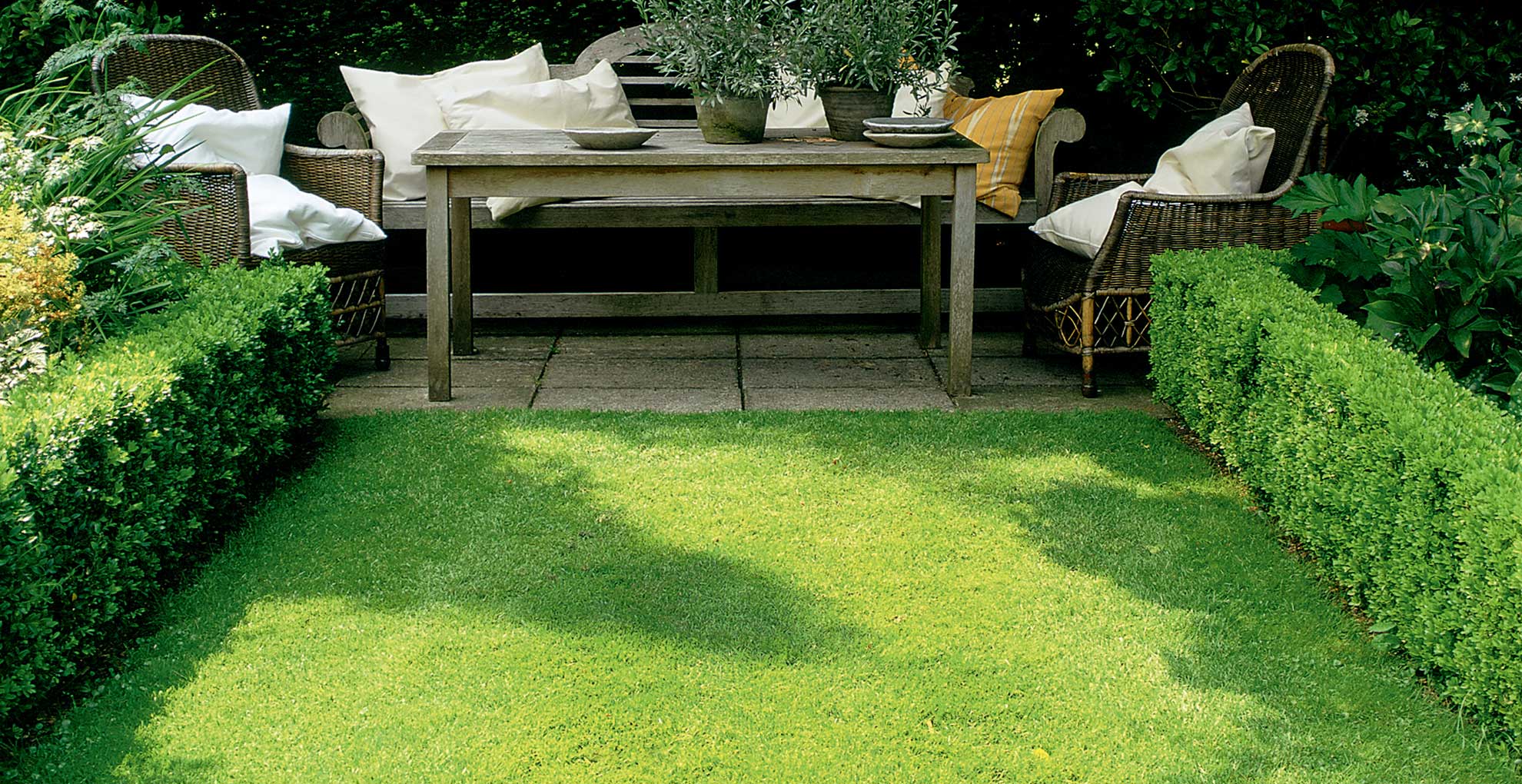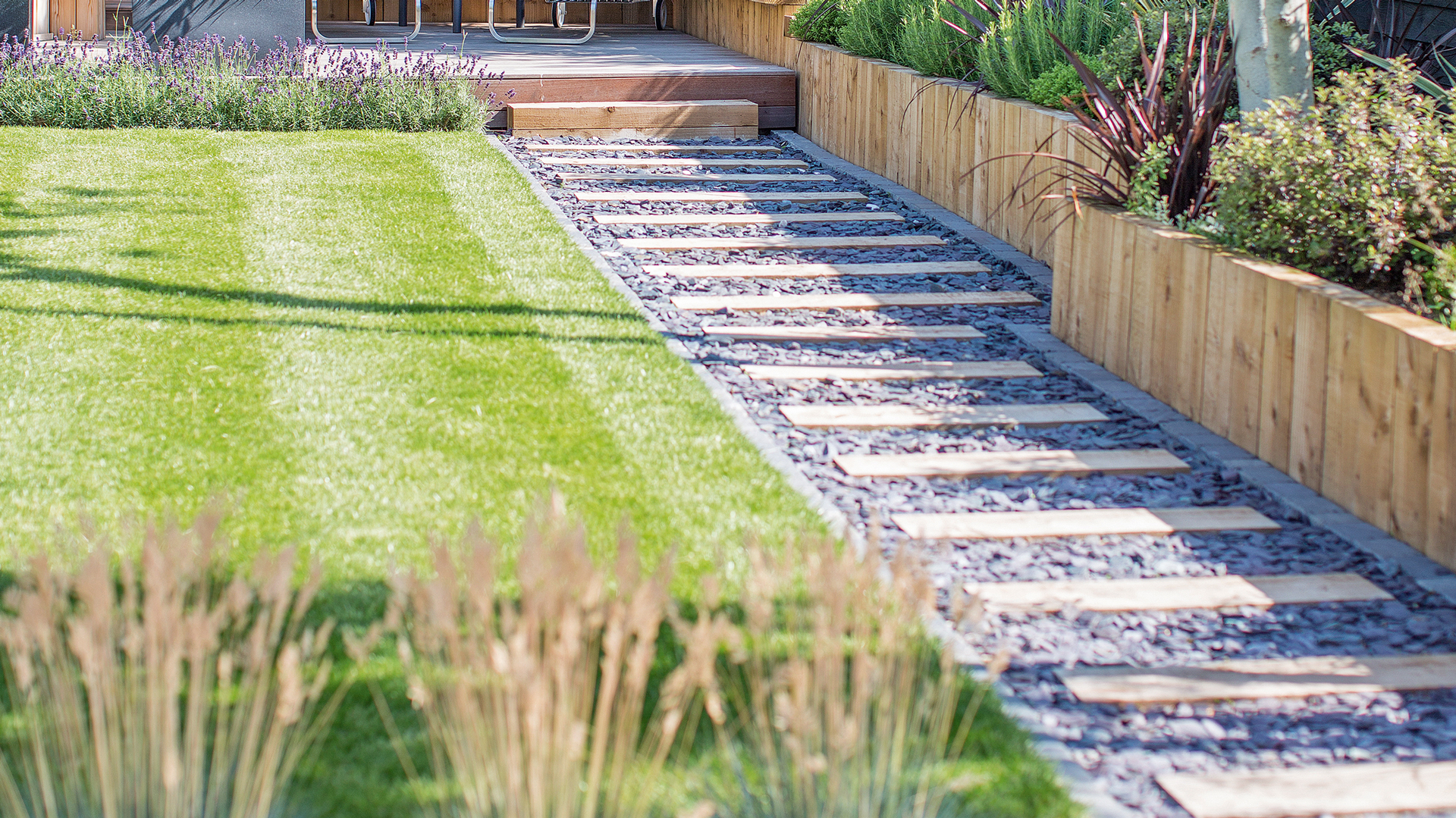Experts explain how to get rid of ants nest in your lawn without ruining the grass
Banish annoying ants from your lawn with these expert-approved tips


Desperate to find out how to get rid of ants in your lawn – without ruining your perfect green grass? You're not alone, plenty of people get squeamish around these insects. To help you figure out your next move, we've spoken to experts about how to banish ants from your garden for good.
Ants are unwanted guests when hosting BBQs or entertaining outside, and while they don't cause any harm to us or direct damage to garden plants, there's no question that they are an annoyance so finding an ants nest in your garden is never a welcome surprise.
And, even if you know all the best lawn care tips (like how often you should mow and when to fertilize your lawn), it's likely you'll still need some help figuring out how best to remove the nest and how to keep ants away to enjoy a pest-free garden.
How to get rid of ants nest in your lawn: 6 methods
Before we get started, it's important to note that ants are an important part of the biodiversity of our gardens. Still, their nest-building activities can disturb the soil around plant roots. In fact, the majority of ants' nests can be identified by a mound of soil with a hole at the top, which makes them easy enough to track down if you need to.
And, yes, you better believe that this can ruin the aesthetic of a perfectly manicured lawn and cause a nuisance in our outdoor living rooms.
"Ants and their nests only cause cosmetic damage to your lawn, and whilst we all love a beautifully green and untouched lawn – ants where possible should be tolerated," states Chris McIlroy, a grass expert at The Grass People.

Still, there are some legitimate reasons to get rid of an ants nest, including:
Sign up to our free daily email for the latest royal and entertainment news, interesting opinion, expert advice on styling and beauty trends, and no-nonsense guides to the health and wellness questions you want answered.
- if you have a problem with aphids and similar pests
- if the ants nest is home to a stinging species such as fire ants, or a potentially destructive species such as carpenter ants
- if the ants have been coming inside your home to find food or water
As such, you'll likely be pleased to know that it is possible to remove ants nests in lawns without causing any damage to the grass around it – and, in many cases, without harming the ants, either.
Here's what you need to know.
1. Brush away the ants nest
One of the easiest ways to remove an ants nest? Brushing away the excavated soil. "Brush away the mounds as they appear on a dry day to be level with your lawn and to lessen their appearance," advises Chris.
If you decide to go with this option, be sure to avoid doing it on a wet day, as it will smear the soil across your lawn.

2. Water the lawn
It might sound a little simplistic, but regular watering is a great way to teach ants that your lawn isn't the best place to make a nest.
"Ants thrive in dry environments, so giving them a good dousing is a great way to get them to move on," says Christopher O'Donoghue of Gardens Revived.
He suggests regularly watering (but not flooding, so be careful about how long you water your lawn for) the nest and to do so with cool or lukewarm water never boiling.
"Some people cite boiling water as a great ant killer, but it also weakens plant roots and can also kill off the microbes in your soil, making your lawn more susceptible to diseases," he says. "You could end up doing some serious damage to your garden."
3. Apply diatomaceous earth
Made from microscopic algae, diatomaceous earth is a natural and non-toxic alternative to chemical ant killers.
It works by sticking to an insect's body, causing it to die of dehydration within two weeks – and it does so without damaging your lawn whatsoever.
The bad news? Other than the fact you'll have to keep reapplying it, that is? Why, it's that "diatomaceous earth can be very harmful to useful pollinators if they come into contact with it," says Christopher.
With this in mind, be sure to follow the instructions very carefully and only use it around the entryways to the ants nest.
4. Apply a biological nematode
It is possible to purchase a "non-pesticide control treatment, such as nematodes" to treat ant nests in lawns and flower beds," says Chris.
A single pack of nematodes usually contains millions of the microscopic, worm-like parasites, which means that you can water them into the areas of your garden where ants are most active.
While they won’t harm children, pets or wildlife, it is important to note that nematodes may also affect other insects – and they need to be applied when soil temperatures are above 50ºF if you want them to work effectively.

5. Call pest control
If you are finding it difficult to remove the ants nest from your lawn with the methods laid out above, and if you "have concerns that the ant species may be harmful, contact an ant removal specialist," says Chris.
"Remember, many commercial ant powders, baits, sprays and aerosols aren't suitable for use outdoors," adds Christopher, "and all other pesticides are always best placed in the hands of people who know what they're doing."
6. Futureproof your garden against ants
Once your ant nest has been removed, it's worth considering how you will prevent them from returning and ruining garden trends in the future.
The team at DIY Pest Control advise that you:
- Trim trees to ensure that branches do not touch the house.
- Paint and seal exposed wood constructions before they become wet.
- Replace rotten, water-damaged, and previously ant-infested wooden structures.
- Remove dead stumps on the property.
- Store firewood off the ground.
Christopher, meanwhile, suggests planting some basil, lavender, rosemary, eucalyptus, or marigolds around your garden, as these are all plants that naturally help to deter ants.
"Some people also swear by using the best essential oils, such as peppermint and tea tree, and white vinegar as an ant deterrent," Christopher adds.
"Personally, I'd just make sure to remove all food sources that might be tempting them in, and make a conscious effort to rake away disturbed soil after mowing the lawn." This should help convince ant colonies that your garden isn't a good spot to settle down. This rule also applies when trying to keep wasps away too.
How do I get rid of ants in my lawn without killing the grass?
There are many ways to remove an ant nest from your lawn, but the easiest by far is to brush away the excavated soil – ideally early in the morning or late in the evening when ants are less active. This reduces the risk of encountering any aggressive or defensive behaviour from your six-legged squatters.
Before you get started on removing that ants nest, though, the Royal Horticultural Society warns: "If a colony is destroyed, it is likely that its place will be taken by in-coming queen ants, which take over the territory and may establish even more new nests."
Do ants nests damage lawns?
While ants nests can be unsightly, it's important to remember that the vast majority of ants do little direct damage to plants.
However, they can disturb the soil around plant roots when building their nests (which isn't ideal for lawns) and they can also disturb aphid predators in a bid to protect their source of sweet-tasting honeydew, which can cause second-hand damage to plants as a result.

What causes ants nests in grass?
As mentioned already, ants love to feed off aphids – an insect which is primarily drawn to a lush and verdant garden. So, in a way, you should take it as a compliment that ants have chosen to set up shop in your lawn.
It's also important to note that ants thrive in dry conditions, so are much more likely to appear in sandy soils, which is why gardeners recommend watering an ants nest when it appears.
Will boiling water kill ants?
Many advise boiling up a pot of water and carefully pour it directly onto the ants nest to kill the insects and destroy the nest structure. While this method is effective on smaller colonies (you will need a lot of water for a larger one, especially as ants are likely to disappear deeper into the ground), it is also a surefire way to damage your lawn, too. It is for this reason that experts advise against it also to get rid of weeds.
Expect weakened roots, soil that's been eroded of nutrients, and a garden more prone to diseases, too.

Kayleigh Dray is an experienced writer and editor within the world of digital journalism. She kicked off her career in magazines with Cosmopolitan as a news writer. Kayleigh then went on to become part of the digital editorial team at Closer, before a successful seven-year stint at Stylist, where she took command as the site’s editor and editor-at-large.
Nowadays, Kayleigh can be found freelancing for a myriad of titles including Woman & Home, along with a role at Ideal Home where she waxes lyrical about her true love: gardening. She is currently giving her own backyard a woodland-inspired makeover – and there have been whispers of a vegetable plot, too.